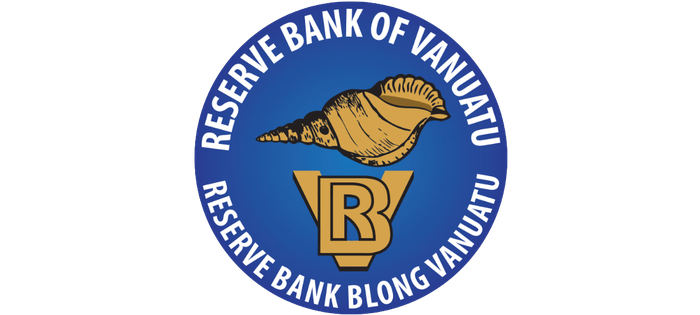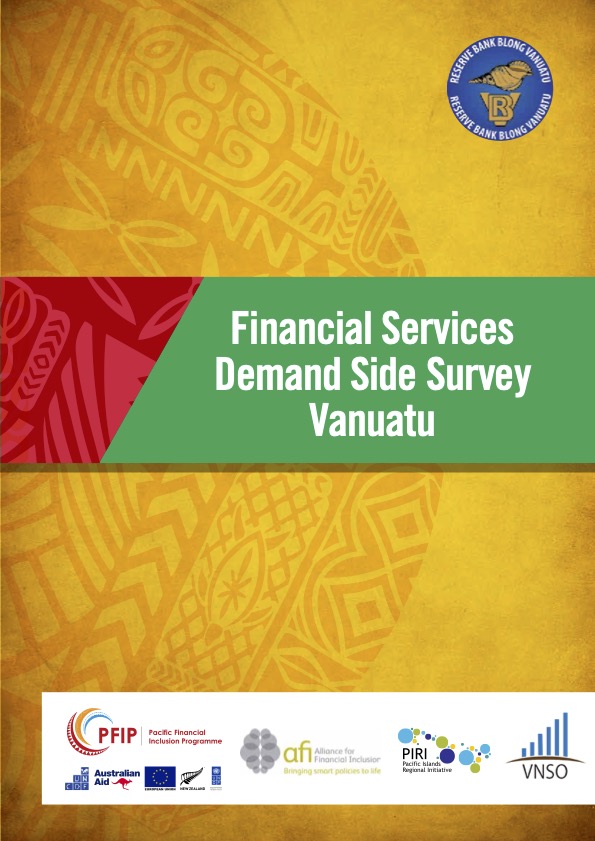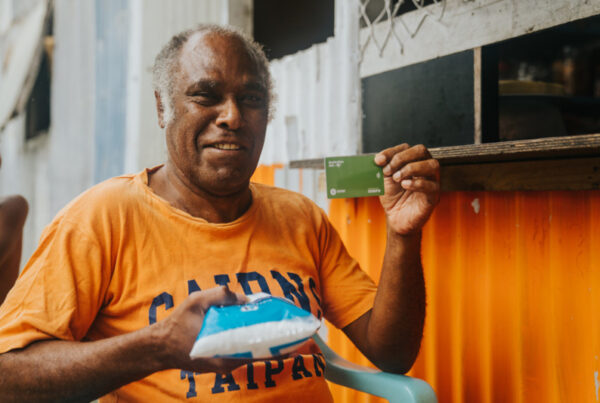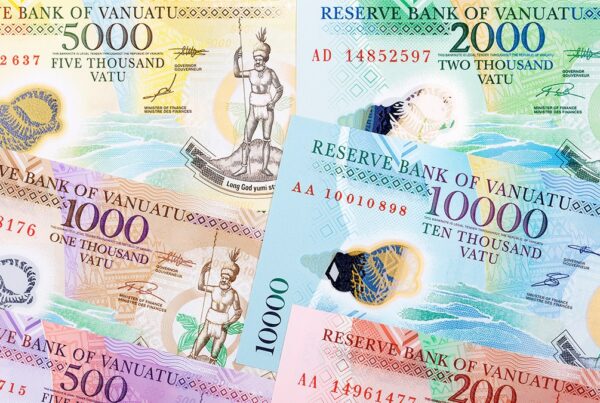Executive Summary
According to responses to a nationally representative survey in vanuatu conducted in June 2016, the country has a level of financial inclusion comparable to its peers in the Pacific islands. The survey, led by the reserve Bank of vanuatu and the vanuatu national Statistics Office, is the first of its kind in the country, giving policymakers valuable baseline evidence of consumers’ access to and usage of formal financial services, and laying the groundwork for future research into how these services fit into and transform the lives of everyday ni-vanuatu.
Agricultural income earners are most likely to be unbanked
although the majority of adults in vanuatu earn income from agriculture, agricultural income earners are most likely to be unbanked. There are a significant portion of adults in all income brackets that earn income from agriculture, but even 24% of the wealthiest adults in vanuatu who earn income through agriculture are unbanked, compared to only 13% of the wealthiest adults not earning income through agriculture. agriculture is a cash-driven sector that takes place in mostly rural settings. These factors could contribute to the low levels of formal account ownership, even for wealthier adults. Policy makers seeking to increase account ownership among agricultural workers should address barriers such as lack of identification, distance to access points, preference for cash, and the perceived cost of setting up formal accounts.
Men are more likely than women to be banked, but women are more financially active than men
There is a significant gender gap in bank account ownership. 32% of female adults report owning a bank account, compared to 41% of men. even though women are less likely to report owning a bank account, women are more likely to report saving in the past 12 months, and they say they deposit and withdraw from their bank accounts more frequently. The DSS survey does not reveal the reasons for these differences, nor does it explain why men seem more likely to own current accounts and women are more likely to own savings accounts.
Savings, credit and remittances meet distinct, different needs for adults
Savings, credit and remittances serve unique uses for adults in vanuatu. Savings is primarily used for education, credit for housing and remittances for short term expenses (utility bills, food). Formal financial providers can use these findings to design and market products.
Informal savings instruments play a large role in the financial lives of adults
informal savings and credit instruments are widely used throughout vanuatu: 80% of adults have used either an informal credit or savings instrument in the past 12 months. This compares to only 37% of adults overall having used a formal credit or savings instrument in the past 12 months. even banked respondents save almost 50% of their total savings in informal instruments.1 informal instruments potentially meet needs that are not being met by formal instruments, such as convenience and flexibility of savings.
A large percentage of banked adults are not transacting
Over 20% of banked adults in vanuatu have not made a bank transaction in the past 12 months. an additional 17% of banked adults transact into and out of their accounts, but they have not used these to save or borrow in the past year. This high level of inactivity underpins the problem of equating access and usage. Formal account ownership is only one angle of financial inclusion within a country.
(…)






